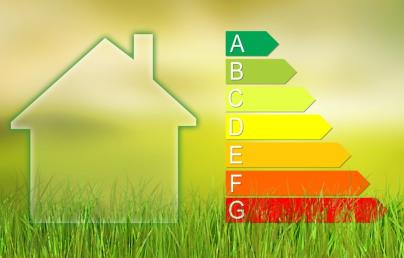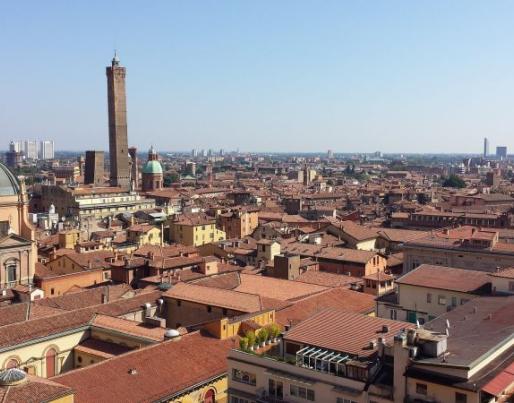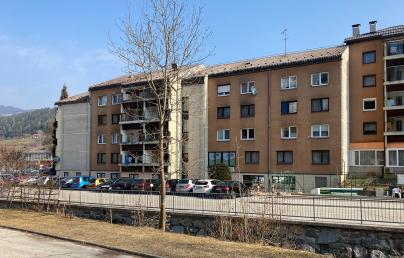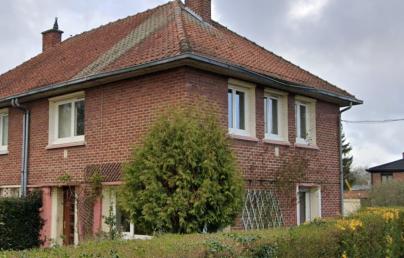
The case of Villaggio Gandusio: Using eco-friendly materials to fight energy poverty

The case of Villaggio Gandusio: Using eco-friendly materials to fight energy poverty
The retrofitting project of the public housing complex of Villagio Gandusio (Bologna - Italy) represents an example of social innovation and fight against energy poverty. The project allowed the renovation of building facades, installation of heat meters and general better maintenance.
Bologna is an attractive European city, rich in diversity and designed for people. Rental prices in Bologna are among the highest in Italy and this has a great impact on resident families. In 2018, the Municipality of Bologna – through its managing body, ACER- started a complex activity of retrofitting and achieving energy efficiency of the buildings of the public housing complex Via Gandusio no. 6-8-10-12. Over the decades, this settlement, in addition to normal physical deterioration, has experienced phenomena of increasing social conflict. This is partly due to an excessive concentration of situations of fragility in the same context, with negative repercussions on the housing quality and liveability of the entire neighbourhood system.
The process involved the refurbishment of the façades with thermal insulation; better maintenance of the balconies, roofing, atriums and stairwells; improvement of the maintenance of the electrical and gas system; replacement of fixtures; installation of heat meters.
An integrated project was needed to provide not only a physical but above all social regeneration, to restore the dignity of living and positive relationships between people in the Via Gandusio.The challenge was to transform one of the city’s most critical public housing areas into a place of social innovation, with an experimental project that could also be replicated. Villaggio Gandusio aims to be a place integrated into the neighbourhood, where the quality of living and social inclusion are expressed in the sustainability of the social mix and in shared projects of aggregation and solidarity. To achieve this goal, a coaching was necessary and social mediation, to ensure a good coexistence among residents.
These measures took place with the help of social mediation activities of the social cooperative, an open group, and a constant presence and coordination by the institutions. The social mix was also enriched by an agreement with Er.go (Regional Authority for the Right to Higher Education) that granted apartments to benefit low-income university students who have engaged in a community care project, helping residents’ children with after-school activities.
Actions carried out
- Retrofitting of the public houses in Via Gandusio (160 apartments, plus common areas)
- Constant presence of facilitators with a designated office inside one of the buildings
- Assignment of the renovated apartments according to a social mix model
- Allocation of some apartments to benefit low-income university students
- Social mediation actions to foster a good coexistence among residents
- Activities to improve common spaces and green areas surrounding the buildings
- A website dedicated to the development of the project, open to the collaboration of inhabitants and citizens
- Training for residents to become community facilitators
- Activities and events to foster social cohesion
Results of this integrated project
160 housing units plus some spaces for associations were involved in the transformation process. Following the project:
- retrofitted buildings have a lower energy impact
- a committee of resident facilitators was created with the task of acting as a referent for the municipality and the management body of the buildings (ACER) and also enabling internal relations between neighbours
- a digital chat was introduced for communication between neighbours
- neighbours help each with small works and tasks on a voluntary basis
- high participation in after-school activities for the children that have been taken care of by the students
- a positive change in the image of the street and in the perception of the area and also in the way residents describe the neighbourhood
Find more information here.

